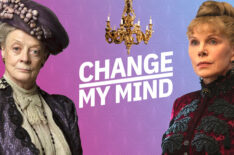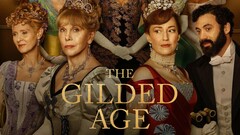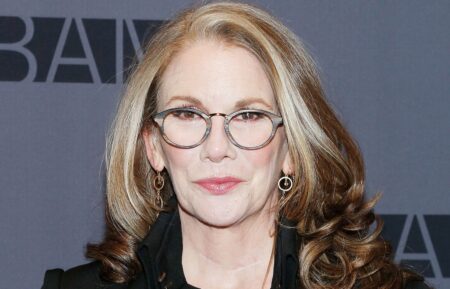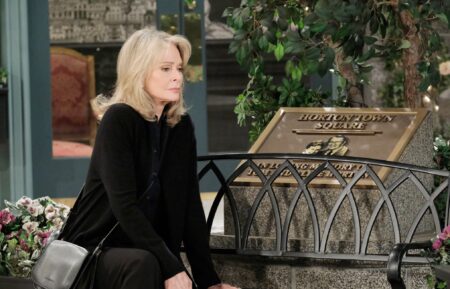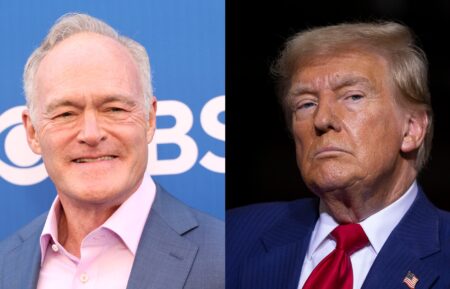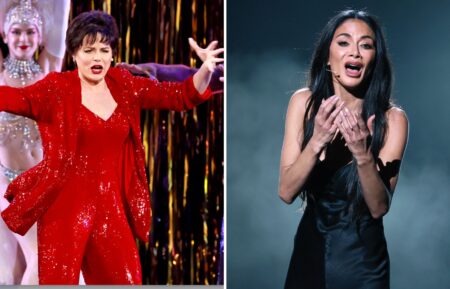What Could Happen in ‘The Gilded Age’ Season 3? Sonja Warfield Teases Possibilities
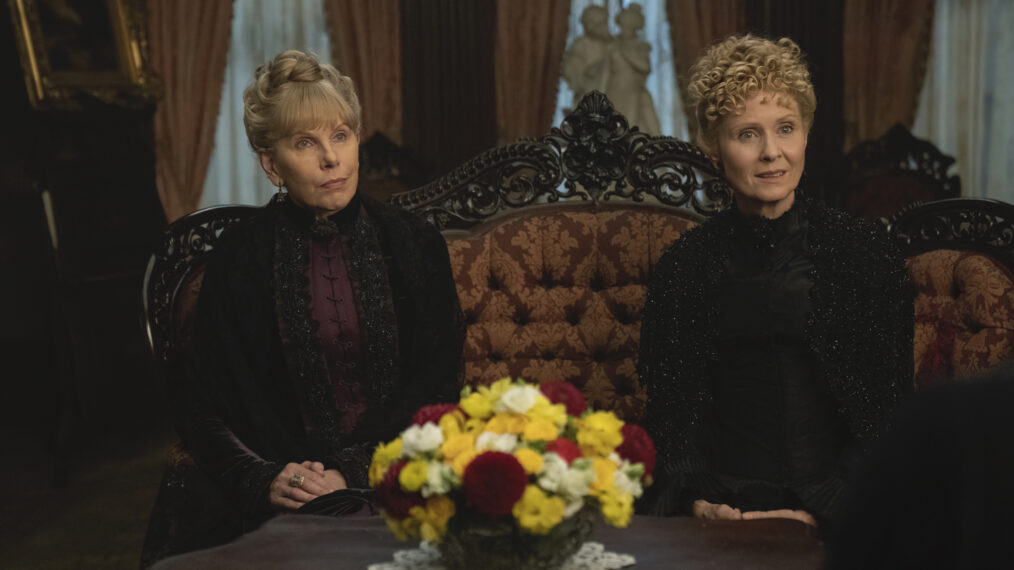
[Warning: The following contains MAJOR spoilers for The Gilded Age Season 2.]
After increasing its viewership for six consecutive weeks in Season 2, The Gilded Age was renewed for Season 3 at HBO. The cable network announced the exciting renewal on December 21, just four days after The Gilded Age Season 2 finale and that big Ada plot twist.
Now that the Van Rhijn/Forte family’s fortune has been reversed again, and now that Bertha Russell (Carrie Coon) has won her opera, war drama could unfold in The Gilded Age Season 3? TV Insider spoke with executive producer and writer Sonja Warfield about the possibilities.
Season 3 planning had not yet begun when the Season 2 finale aired on Sunday, December 17. They didn’t want to begin work on a season that wasn’t yet official. But after the widowed Ada (Cynthia Nixon) surprisingly inherited her late husband’s fortune (Reverend Luke Forte, played by Robert Sean Leonard), the world is Ada’s oyster. She’s the woman of the house now, on whom he older sister, Agnes (Christine Baranski), financially relies after her son, Oscar (Blake Ritson), squandered the Van Rhijn family fortune in a scam investment.
Season 3 is “something that we haven’t quite discussed,” Warfield says, but “we have so many places to go” in future episodes. “It’ll be fun” to see what Ada does with her new money. She’s from an old money family, but has never controlled money herself. So it will be an interesting change to explore in the third season.
Another big moment of the Season 2 finale was Marian Brook (Louisa Jacobson) and Larry Russell’s (Harry Richardson) kiss. They had been subtly flirting all season long, and after Larry and his older lover, Mrs. Susan Blane (Laura Benanti), split and he moved on, fans were clamoring for these neighbors to get together. Jacobson herself was “very excited” by that development, she previously told TV Insider, saying she had “been wanting that to happen.” One thing that is sure to occur in Season 3 is Agnes learning about this romance.
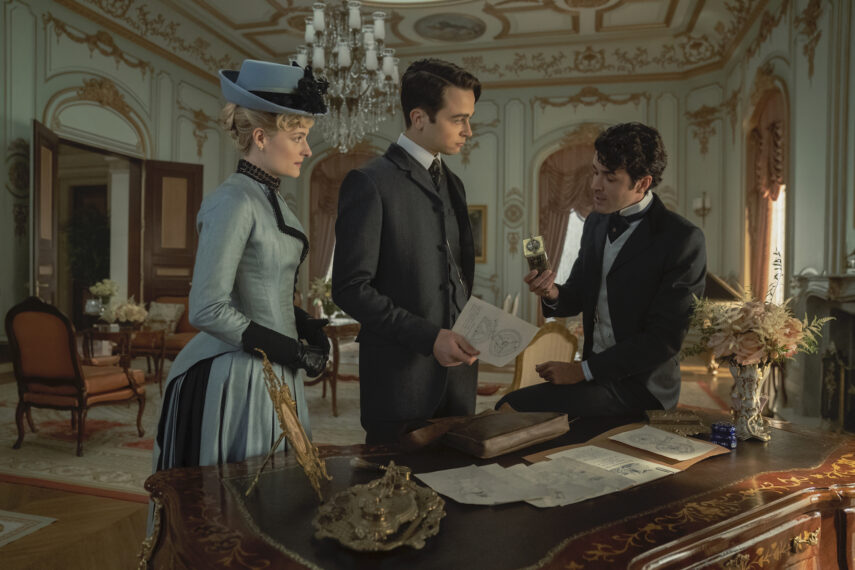
Barbara Nitke/HBO
“Can you imagine” how up in arms Agnes might be about “Larian,” Warfield asks with a smile. The Season 1 plan was to establish Agnes as the dominant force of the home, a brick wall that was often impossible to move. Though she has her tender and progressive moments, Agnes is staunchly team old money in this ruling class warfare. She lost more and more control as Season 2 pressed on. Now, in Season 3, she’s broke, relying on her sister entirely, and is no longer the manager of her downstairs staff. You can imagine this means she will make some demands but then be reminded she’s not in charge. Finding out that her niece — whom Agnes badly wanted to marry her nephew by marriage, Dashiell Montgomery (David Furr), in Season 2 — is now being courted by the Russell’s son, of all people, can’t go over well.
“My long game is to completely undo Agnes,” Warfield says. “She’s kind of my favorite character to love and hate. And so I just want to see her just be unraveled in a way, but still maintain decorum and her witty retorts.”
The Gilded Age also covers racial, social justice, and workplace struggles. We saw these covered in Peggy Scott (Denée Benton) and George Russell’s (Morgan Spector) plots in the second season. Bertha is based on Alva Vanderbilt, who became very involved in the women’s suffrage movement, and George the robber baron Jay Gould. The series is set in the 1880s, and the American women’s suffrage movement began in 1848.
Vanderbilt didn’t involve herself in the movement until 1909, but suffragettes were mentioned several times during a Season 2 set visit that TV Insider attended in September 2022. Could Season 3’s political plot start to cover the fight for women’s right to vote? This could be a way to bring the white elite of Manhattan and the Black elite of Brooklyn together in Season 3, though it would need to be a point of conflict, as many of the white women of the movement excluded Black women.
“The thing about women’s suffrage was, at some of the protests or whatever, Black women weren’t not allowed,” Warfield says. “In terms of the timeline, I don’t think we’re quite there yet. Our historians will let us know. I work really closely with Dr. Erica Dunbar, and so she always informs me. Usually Julian [Fellowes, fellow executive producer and writer] and I have discussions about what we would like to do with the characters, and we talk to Erica, and then she will give us some of that background and history. And if it works out, it works out. So we shall see … Those are things that we hopefully will get to explore.”
To win the opera war, Bertha promised her daughter, Gladys’ (Taissa Farmiga), hand in marriage to the Duke of Buckingham without her husband, George’s, consent. This enraged George, and it will be big point of conflict for the couple moving forward. In real life, Vanderbilt divorced her first husband after she married their daughter off to a duke. Are George and Bertha headed for the same fate?
“We take artistic license,” Warfield assures. “Julian created these individual characters. Yes, they have some of the new money qualities, but Bertha is her own person, so we shall see. George and Bertha had their troubles Season 2. They were able to work through them. You do get stronger when you go through things together and you make it through, so we shall see. But they’re a great power couple. I’m always team Bertha and George.”
The Gilded Age, Available now, Max
From TV Guide Magazine
'America's Got Talent': Simon Cowell Teases Big Changes in Season 20 as Mel B. Returns
The show’s judges and host preview the landmark season and reflect on how they’re keeping it fresh. Read the story now on TV Insider.

